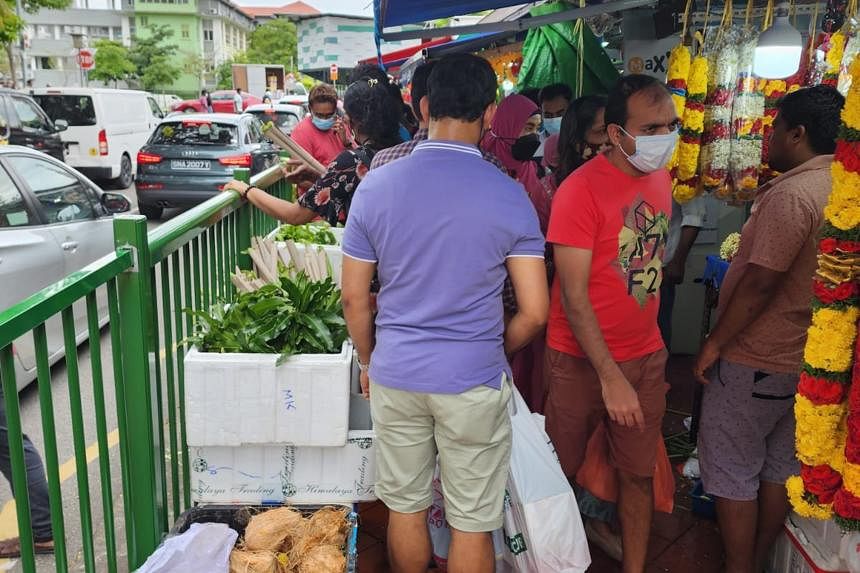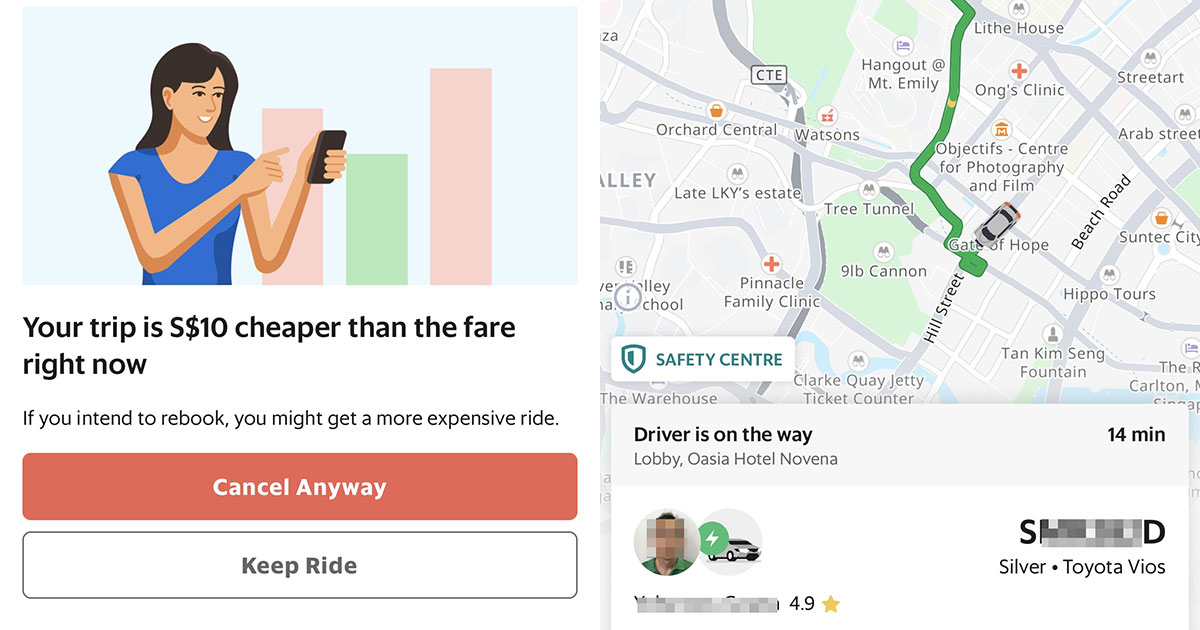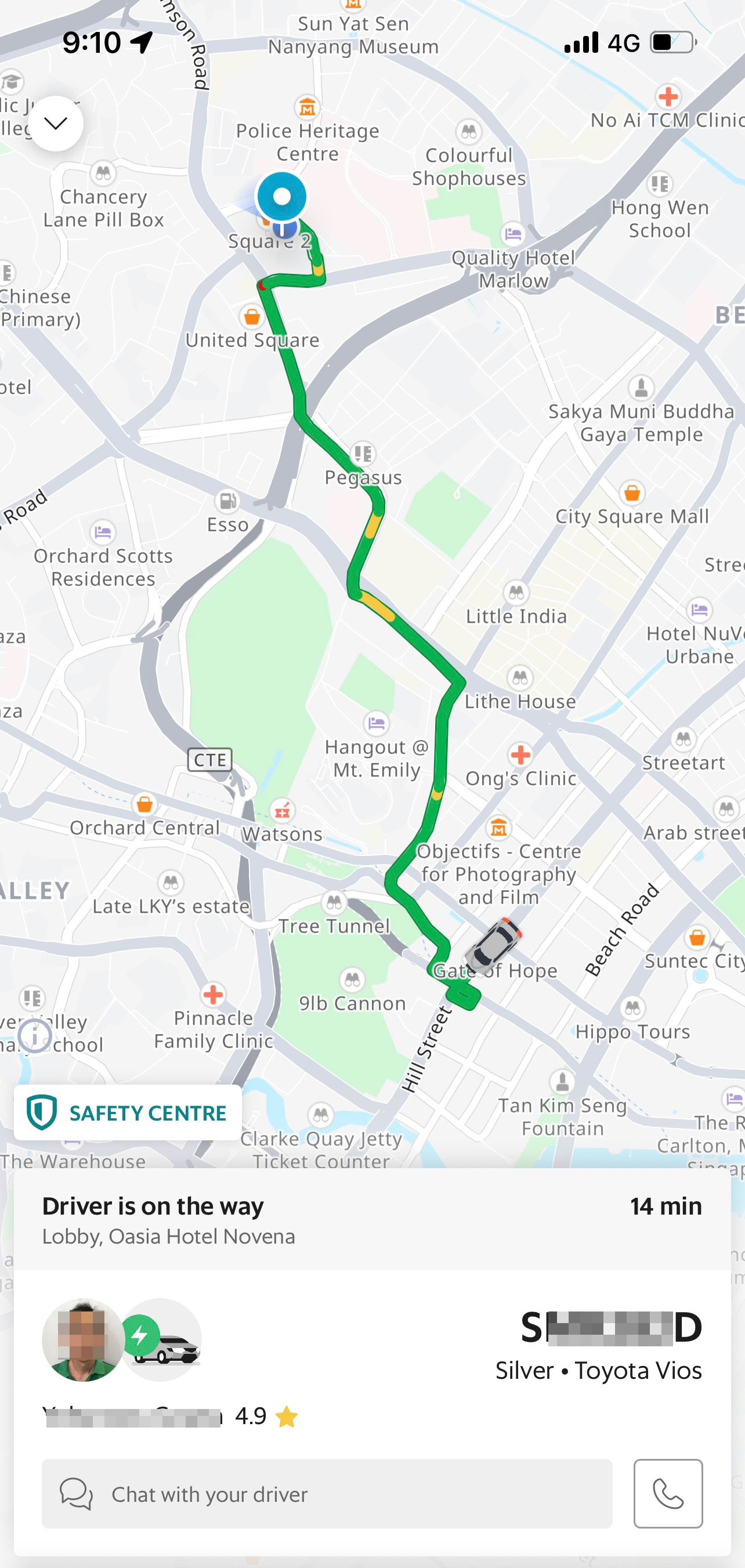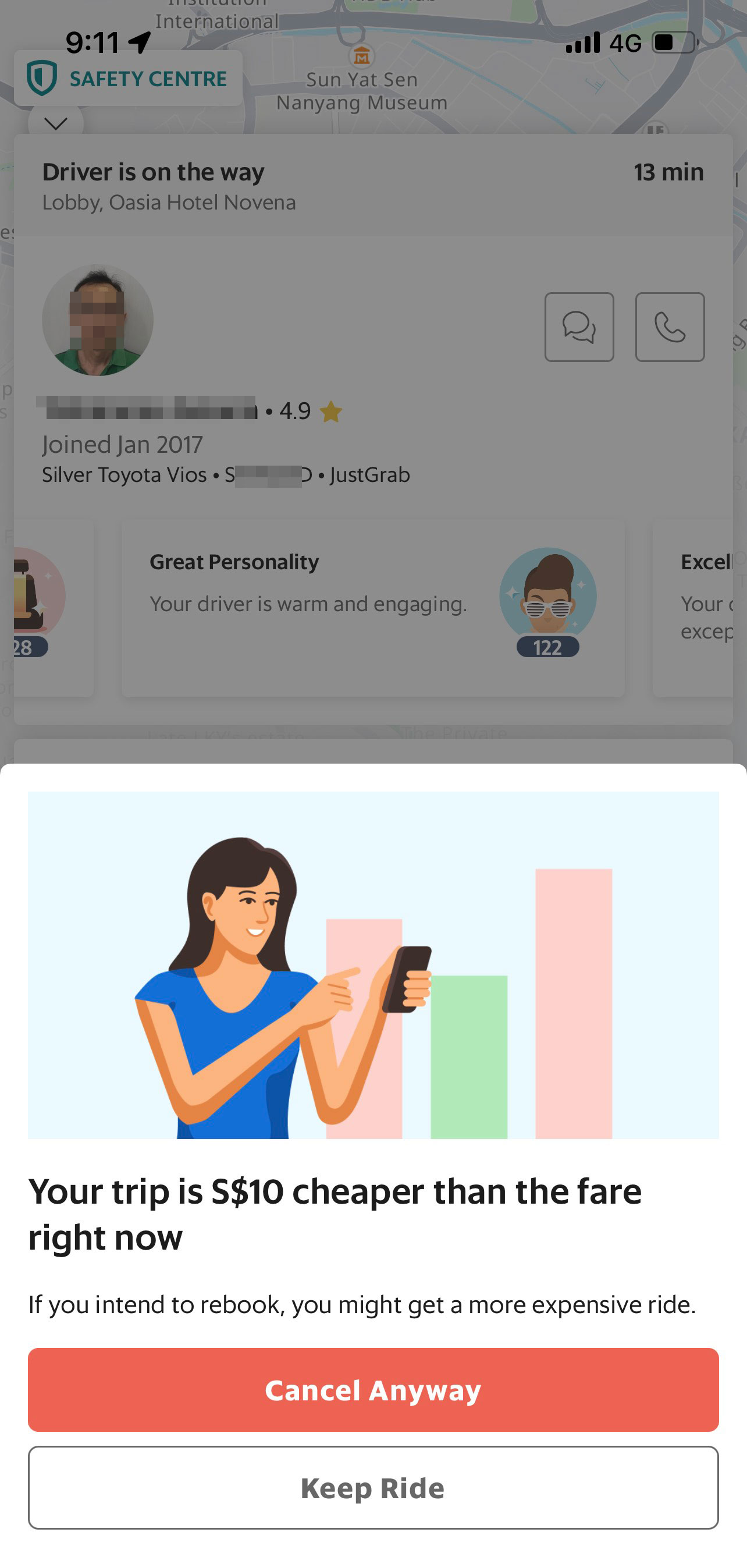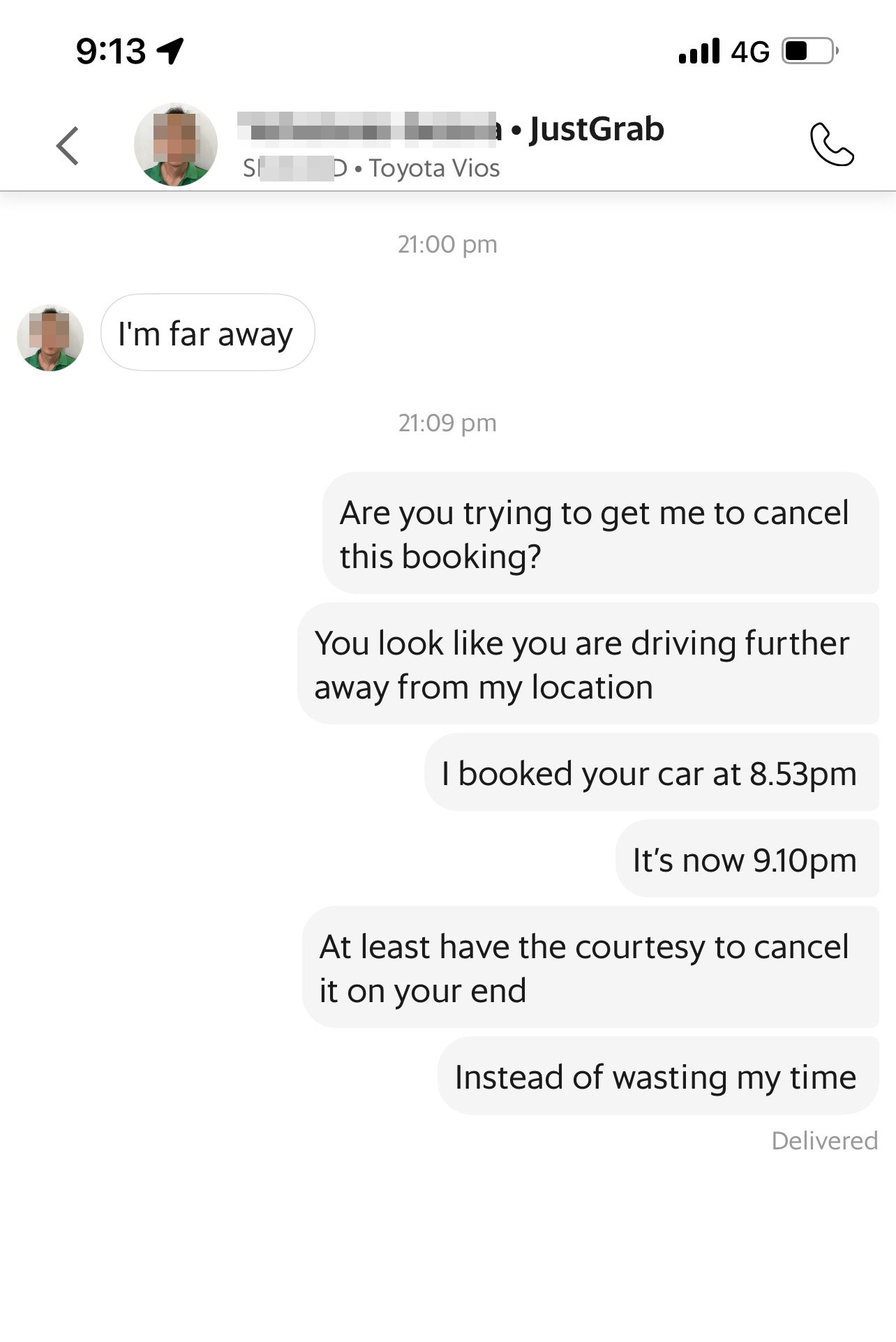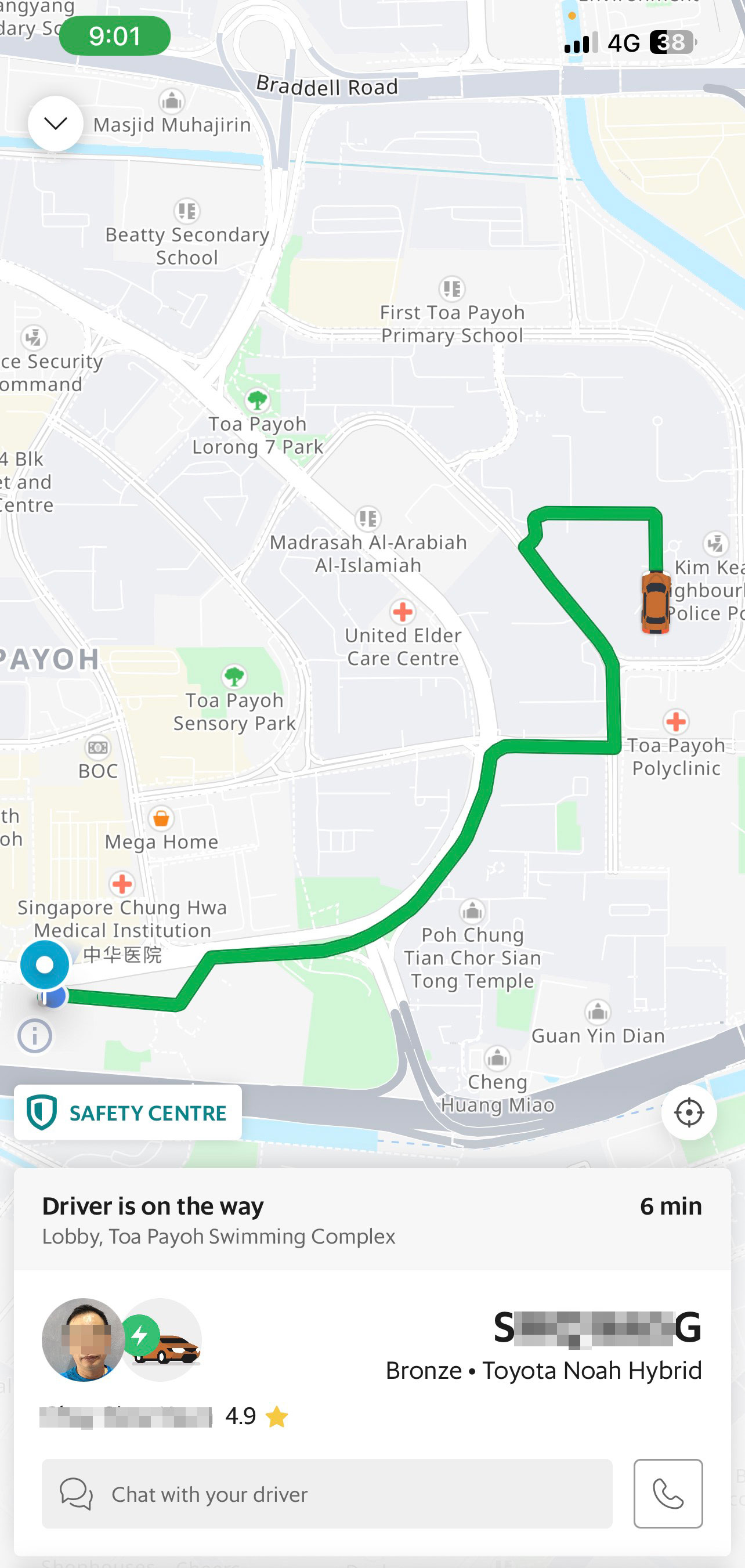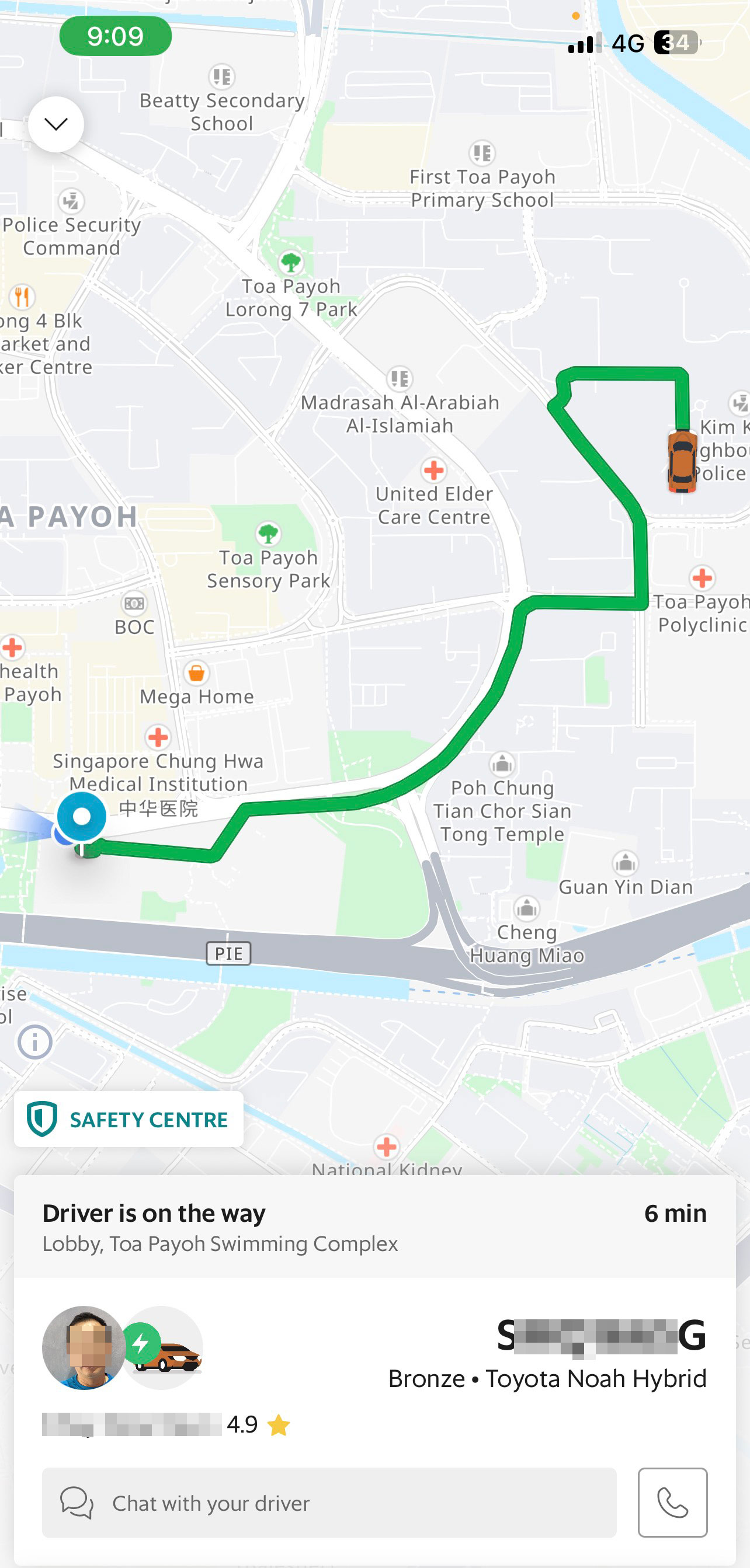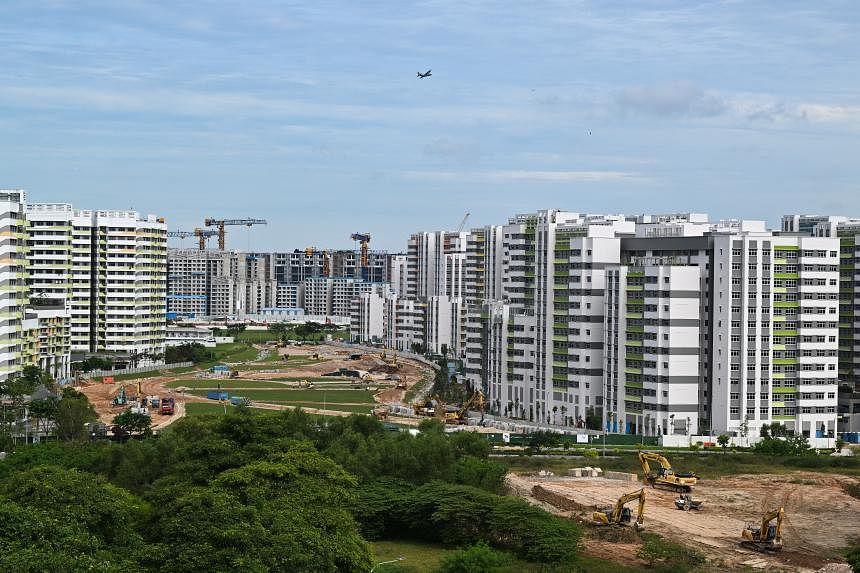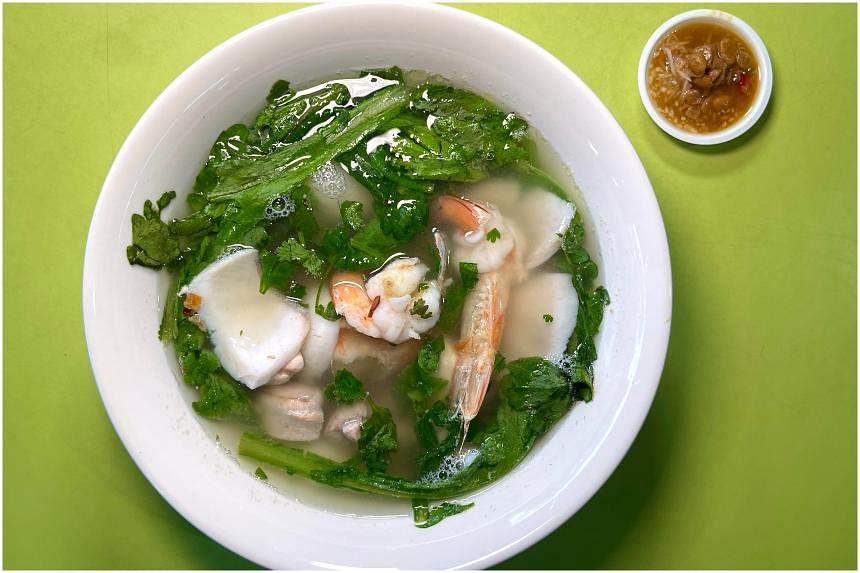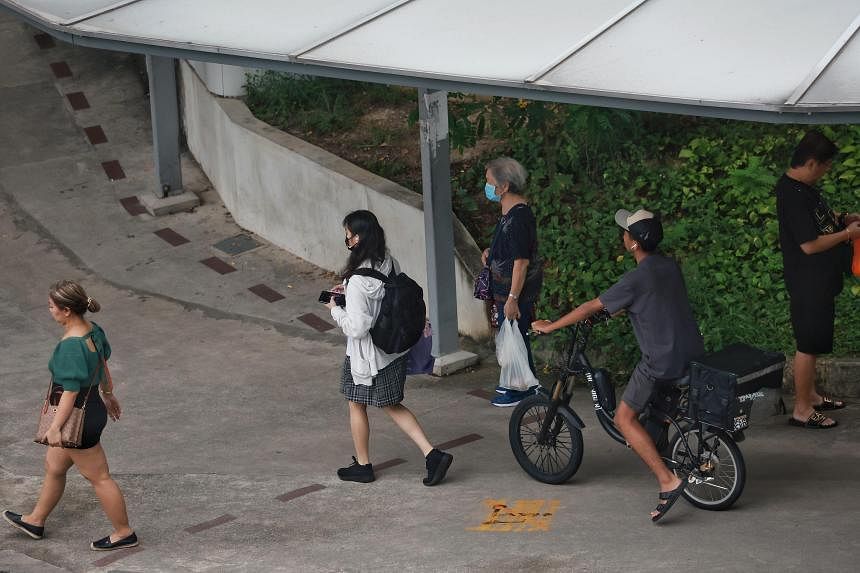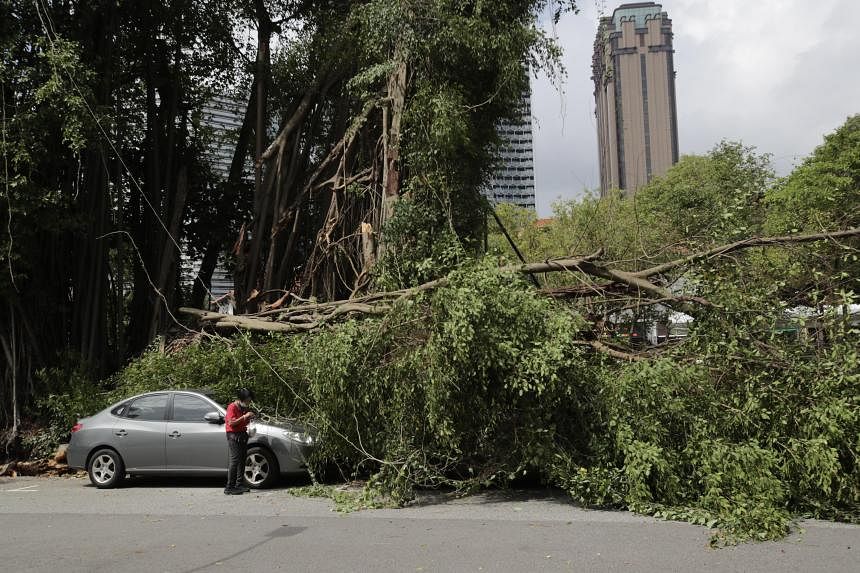S'pore Grab user: Drivers refuse to cancel, don't show up, waste time & wait for higher surge pricing, as they're likely on multiple apps
It is a drivers' market these days.
Belmont Lay |
Nixon Tan | February 07, 2023
There is a
dearth of taxis and private hire vehicles in Singapore now that the pandemic is about done and dusted, with many commuters here experiencing longer waiting times to get a ride.
The latest Public Transport Council's 2022 point-to-point transport services customer satisfaction survey out on Feb. 6 found that passengers' satisfaction with taxi and private hire car services dropped in 2022, with the score for waiting time falling the most.
And this is due to a shortage of drivers for taxis and private hire vehicles, with many not returning to the industry just yet.
A Grab spokesperson told
CNA: "Our current supply of driver-partners is at about 70 per cent to 80 per cent of pre-Covid days while demand has increased with the opening of borders and economies."
Drivers get to pick and choose
One Grab app user has written in to
Mothership to highlight the extent of the problem of getting a ride these days.
With commuters competing with one another to board a vehicle and with drivers using multiple platforms to pick passengers, it has since become a drivers' market.
According to the commuter, he reckoned that drivers are taking advantage of the situation by using multiple apps to match with the highest surge pricing fare at the moment.
This comes at the expense of the commuter as some drivers do not even have the basic courtesy of informing passengers they have no intention of picking them up as they are going to another location to pick another higher-paying commuter.
Mothership has reached out to Grab for comment on this issue and will update this article when we get a response.
Surge pricing antics
This is the Grab user's experience:
I am writing to you to highlight a certain practice by Grab drivers: They receive a booking and accept it, but realise that there is a price surge.
They then refuse to cancel the job and wait for the passenger -- who is waiting for them -- to cancel the booking instead.
This results in time wasted for the passenger, while the driver has probably switched to another app and accepted a booking with a fare that has surged.
I presume this practice of using multiple apps at the same time and picking and choosing jobs is due to the algorithm favouring drivers who do not cancel bookings, which allows them to keep passengers waiting with no intention of picking them up eventually.
From a lay person's understanding, Grab apparently operates on a "strike system", whereby drivers get "one strike" after showing behaviour like this.
However, I do not believe this is working given that this has happened to me twice in the space of two months, both between 9pm and 10pm on a weeknight -- peak period for people going home.
This was what happened to me.
First incident
The first instance occurred on Dec. 1, 2022.
I booked a Grab ride home from work.
The booking was accepted at 8:53pm with the waiting time listed as 8 minutes.
I then realised that the driver was driving away from my location, and the waiting time climbed to 14 minutes.
The driver then texted me via the Grab app to say that he is “far away”.
When I attempted to cancel the booking, I was informed by the app that fares were S$10 higher than my original booking.
I’ve attached screenshots from this incident:
Second incident
Most recently, this happened again.
I booked a grab at 8:51pm, with the car 6 minutes away.
The driver did not move, and cancelled on me at 9:14pm, 23 minutes after the booking was made.
Fare had surged from S$16.80 to S$22.80 when I next checked.
Offered S$3 discount once
Of course, when I wrote in to Grab on both occasions, the driver was “given one strike” based on company policy.
In the first instance, I was provided S$3 off my next ride as a form of apology, while in the second instance, no compensation was offered.
Why do drivers get away with this?
My reasoning: If Grab imposes a late fee on passengers who make drivers wait, shouldn’t Grab then impose a late fee on drivers who make passengers wait as well?
I can understand that drivers want to make as much money as they possibly can.
However, they should then not accept the booking in the first place, or at least take it on the chin and cancel on their end, if they would like the surge fare profit.
I am bringing this up to see how widespread this practice is and hopefully induce some change at some meaningful level.
Otherwise, Grab will continue to get away with taking advantage of Singaporeans' time and money.
Grab User
